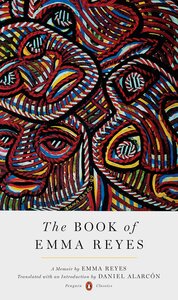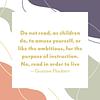Take a photo of a barcode or cover
Innecesario reseñar este libro desde lo narrativo, tal vez porque no existe una intención narrativa como tal más allá de la de volcar la memoria a través de cartas. Lo que logra Emma Reyes es tan puro y honesto que no necesita recursos, narradores, metáforas ni figuras, es tan sólo ella, a través de los ojos adultos de una persona que ha vuelto a ser esa niña y esa voz. No existe una gota de pretensión en el texto, nada de intenciones ocultas, reproches o frases incendiarias, es simplemente la bellísima voz de alguien que cuenta un periodo de su vida para evitar que se desvanezca, y lo más hermoso es que lo hace en forma tan simple y precisa que sólo nos queda maravillarnos de lo real que es, sin análisis de verosímiles ni elaboración de personajes, porque el pacto literario acá es tan diáfano que no hay más que leer y sentir. Lo más valiente es que, a pesar de la dureza de las situaciones, no existe la condescendencia en ella, ni siquiera el reproche, tampoco busca una empatía forzada, simplemente es ella que describe ese mundo terrible en que fue incrustada mientras nos cuenta, como un explorador medieval, la forma en que lo descubrió.
مدهش
رغم ان دة كتاب مش رواية الا اني أنصح به بشدة لـ محبي: شجرة البرتقال الرائعة - شجرة تنمو في بروكلين
رغم ان دة كتاب مش رواية الا اني أنصح به بشدة لـ محبي: شجرة البرتقال الرائعة - شجرة تنمو في بروكلين
كان جميل ومؤلم بس احسه من الكتب الي كانت بتكون افضل بكثير لو قريتها بلغتها الأساسية وهذا مو لانه الترجمة سيئة! بالعكس كانت حلوة بس المتحدثة بالرسائل طفلة فا في صفحات حسيتني ابي أقرأها بكلماتها المباشرة باستخدامها المباشر للكلمات من قبلها بس عموما كان مؤلم ولعله كان من أكثر الكتب الي خلتني اشوف الجانب المقرف والمنحط من الفقر الجانب البشع بس بنظر طفلة... ولعلى هذا الي لمسني وخلاني اتألم اكثر
Pocas veces he visto una novela capaz de transportarme a la mente de un niño, con sus lógicas y falta de juicio, como esta. Es refrescante leer el relato sin las capas de interpretación, análisis y victimismo que suelen agregarse a los traumas. Quizás la intencionalidad, la de contarle la historia a un amigo y no la de publicar un libro, ayude con esto.
challenging
emotional
fast-paced
Dios mio. Creo que no hay palabras para describir este libro. Complejo, denso y espectacular. Emma Reyes escribe de una manera espectacular, y el hecho de describir tu vida a través de cartas es hermoso, pero a la vez, un acto de extrema valentía, puesto que estas cartas deben de haber sido muy díficiles de escribir. Sencillamente, espectacular.
Rating general: 5/5
Feels: 4/5
Narrativa: 10/5
Rating general: 5/5
Feels: 4/5
Narrativa: 10/5
reflective
slow-paced
adventurous
dark
emotional
inspiring
sad
fast-paced
Graphic: Body shaming, Child abuse, Confinement, Fatphobia, Mental illness, Sexual assault, Blood, Excrement, Abandonment, Injury/Injury detail, Classism
challenging
dark
emotional
sad
tense
slow-paced
adventurous
challenging
dark
emotional
sad
tense
fast-paced







